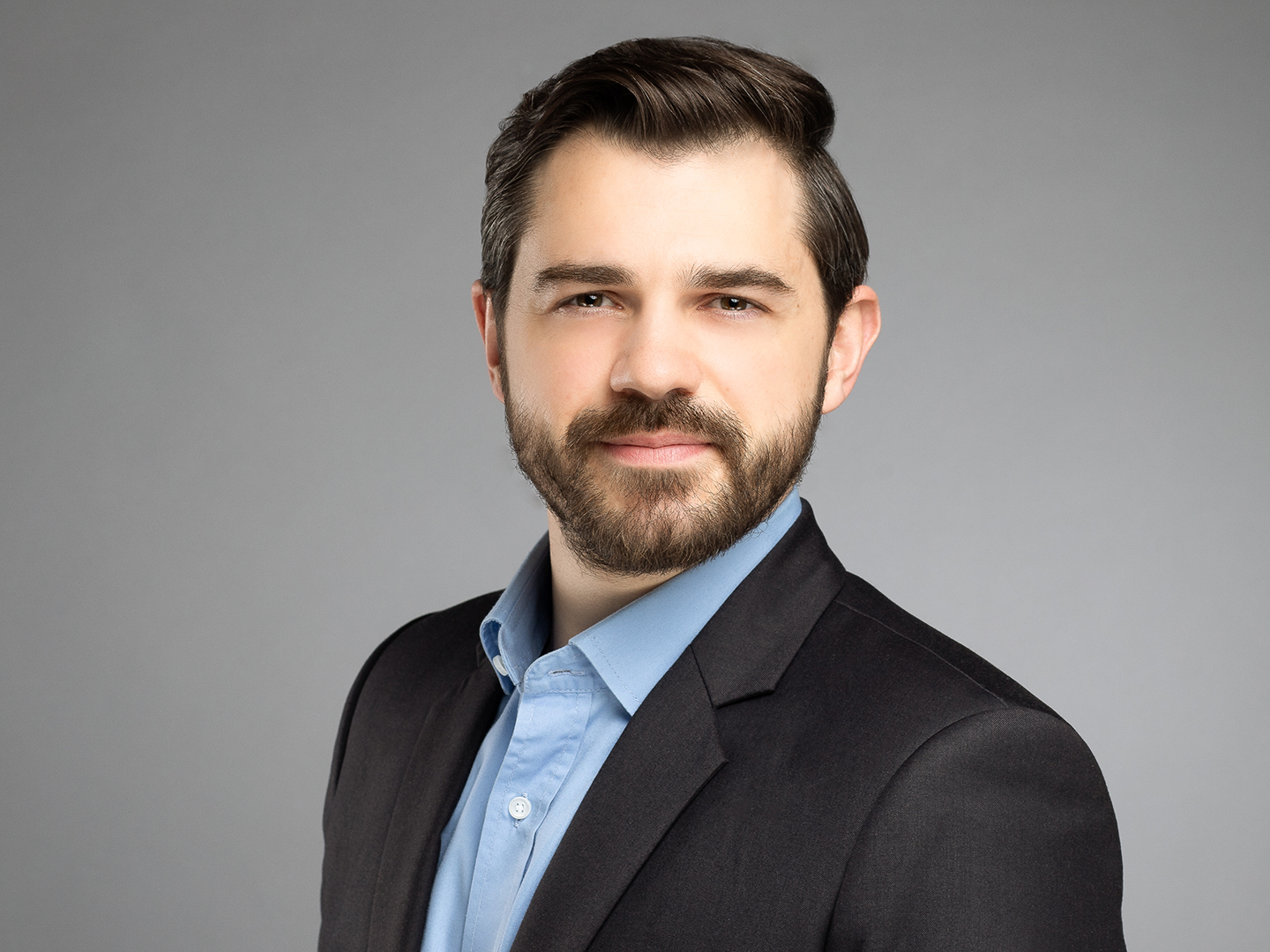Leuna 100
"We want to drive forward decarbonization in the transport sector and promote innovation in methanol production"
Realizing a market-ready and scalable production of green methanol for shipping and aviation – this is the objective of the "Leuna 100" project. Fraunhofer UMSICHT is part of the consortium together with the Climate-Tech-Start-up C1, Fraunhofer IWES, the DBI-Gastechnologisches Institut gGmbH Freiberg and the Technical University of Berlin. In this interview, Dr.-Ing. Norman Kienzle provides insights into the research, talks about the challenges and explains where UMSICHT's focus lies in the joint work.

In a nutshell: What is "Leuna 100" all about?
Norman Kienzle: At “Leuna 100”, various research teams bring together their technological developments in a process chain. The common goal: to produce synthetic fuel from an existing CO2 source to power ships and airplanes. Implementation is taking place at the chemical site in Leuna - exactly where the first commercial methanol plant was built in 1923. Our focus is on developing an efficient process chain to enable a rapid market launch and ramp-up. We want to drive decarbonization in the transport sector - especially in shipping and aviation - as well as promote innovation in methanol production technology. The project strengthens Germany's technological leadership in the fields of gas technologies and catalysis.
What challenges are being addressed as part of the project?
Norman Kienzle: The challenge is to establish scalable and economical production methods for eMethanol – and to do so comprehensively in a coupled process chain of CO2 and green hydrogen. Considerable coordination and cooperation between several research teams is required to ensure that each system works on its own and, above all, in the process chain.
However, it is not only coupled and scaled, but technological innovations are also being researched in order to achieve the goal of sustainable chemistry. This goes hand in hand with the challenge of finding new ways of continuing industrial chemistry in Leuna and thus creating value for the chemical industry in Germany.
What distinguishes the project from others that are dealing with these challenges?
Norman Kienzle: There are several points to mention. Firstly, as already mentioned, it is a coherent process chain at one location. In addition, there is the focus on the German business location and the explicit addressing of the transport sector in the form of shipping and air traffic, in which strategic partnerships have been concluded with companies such as Linde, Clariant and shipping companies such as Maersk. Green methanol is currently gaining acceptance for container ships and there is a demand that needs to be met. All parties involved are therefore interested in rapid development.
What part is Fraunhofer UMSICHT playing in the project?
Norman Kienzle: Fraunhofer UMSICHT is right in the middle of the process chain with the production of the intermediate product – synthesis gas. We thus process CO2 and H2O into H2+CO. The cells of our low-temperature co-electrolysis are being developed in "Leuna 100" specifically for the requirements of a real CO2 source and downstream methanol synthesis. We are also working on our own CO2 separation module for synthesis gas processing and are responsible for the construction, integration and operation of the NTCE container plant.
What characterizes the new low-temperature co-electrolysis?
Norman Kienzle: The generation of product gas with different compositions, more efficient operation at low temperatures, the use of solid polymer electrolyte membranes, which offer higher current densities compared to systems with liquid electrolytes and have good start-up and shut-down behavior (keyword: operation with renewables), efficient CO2 recycling for the overall process and the scalability of the concept for commercial use - there is already a lot of development going on.
What specific expertise does Fraunhofer UMSICHT contribute?
Norman Kienzle: Fraunhofer UMSICHT has experts in the customized development and design of NTCE cells, CO2 recycling and the construction of research facilities in modular container design. Our departments work closely together and can coordinate and strategically develop everything thanks to our comprehensive expertise.
How does the collaboration in the project work?
Norman Kienzle: Good. After all, the first plant is already up and running in Leuna after a project duration of just three months.
Are there similar projects at Fraunhofer UMSICHT?
Norman Kienzle: Yes, there are. For example, the P2X platform project. There we are also developing an NTCE cell for a power plant site. As you can see, our technology has a wide range of applications – actually anywhere where CO2 is generated as a product.
What do you want to achieve at the end of "Leuna 100"? And what are the next steps at Fraunhofer UMSICHT?
Norman Kienzle: I see concrete future goals as scaling up to higher performance, increasing cell and process efficiency, proving the long-term stability of the process and achieving a cost reduction of the overall system.
In summary, the project offers the chance of a CO2-free future for shipping and aviation and Fraunhofer UMSICHT is positioning itself to drive this forward technologically.
FUNDING INFORMATION
The "Leuna100" project started in August 2023 at the Leuna Chemical Park and is scheduled to run for three years. It is being funded by the Federal Ministry for Digital and Transport with a total of 10.4 million euros as part of the overall concept for renewable fuels. The funding guideline for the development of renewable fuels is coordinated by NOW GmbH and implemented by the project sponsors VDI/VDE Innovation + Technik GmbH and the Fachagentur Nachwachsende Rohstoffe e. V. (Agency for Renewable Resources).
Last modified:
 Fraunhofer Institute for Environmental, Safety and Energy Technology UMSICHT
Fraunhofer Institute for Environmental, Safety and Energy Technology UMSICHT